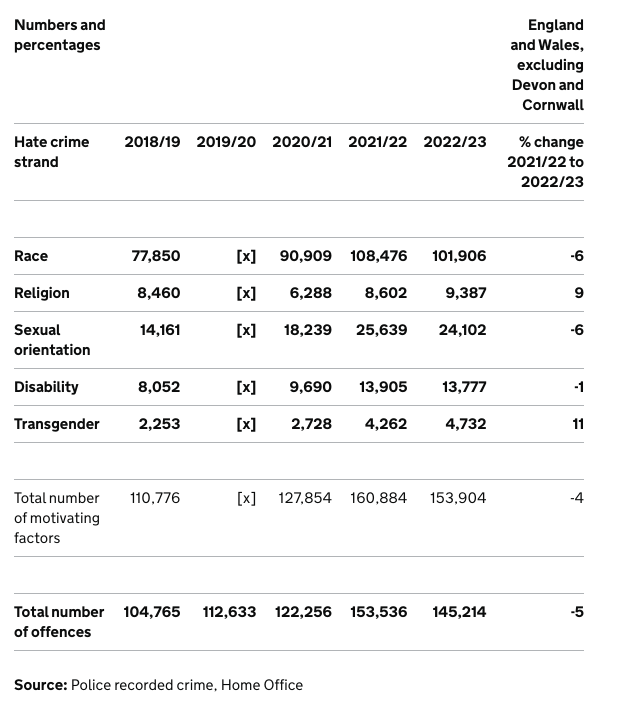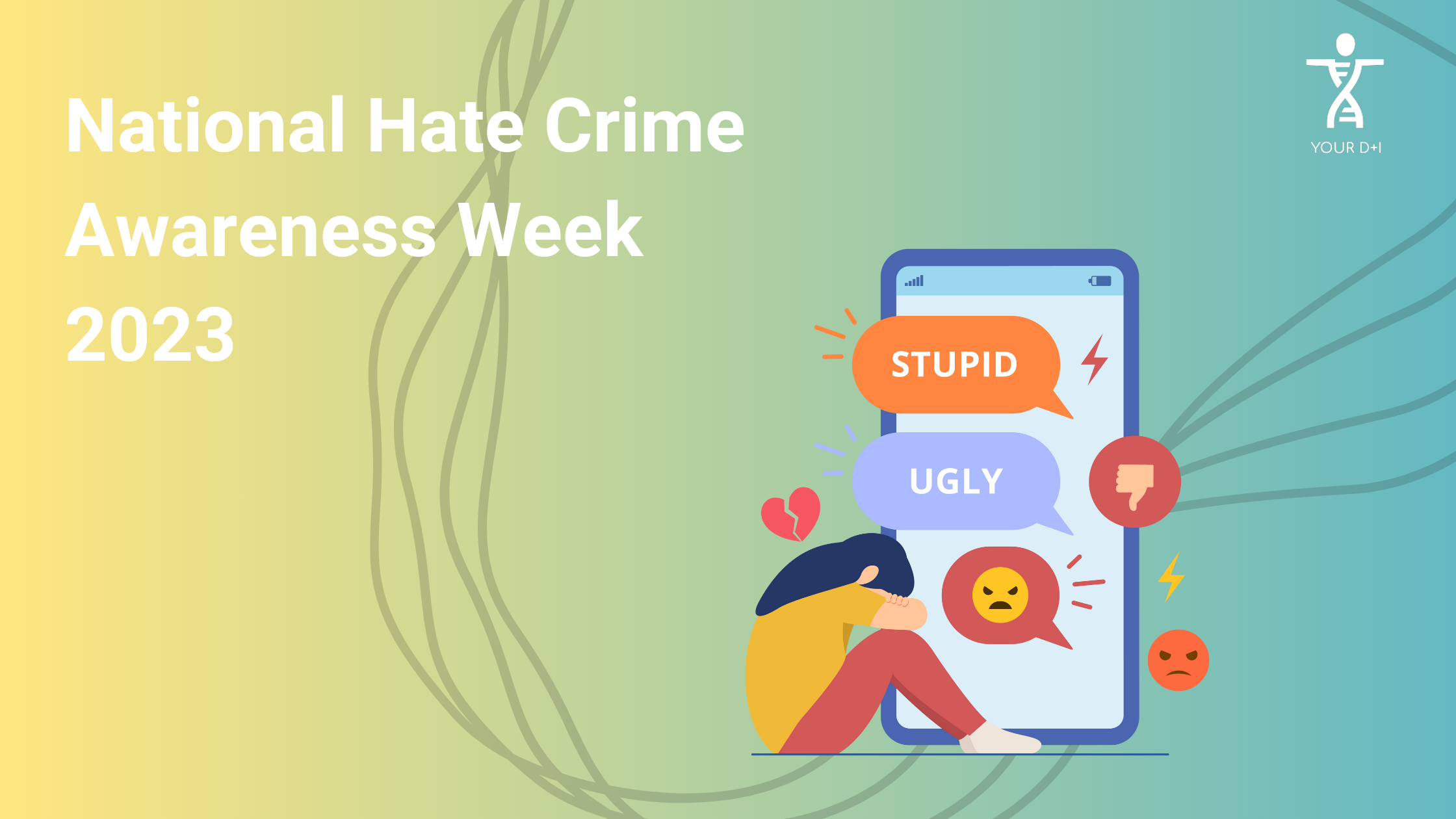There were 145,214 hate crimes in the year ending March 2023 recorded by the police in England and Wales. Although this is a 5% decrease compared to the previous year, it’s still a staggering amount. That’s why more still needs to be done to prevent such crimes happening. This October 14th – 21st is National Hate Crime Awareness Week. Shining a light on what a hate crime is, how to spot and report one and how to spread awareness.
What is a Hate Crime?
A hate crime is a criminal offence perceived by the victim or by another person motivated by hostility or prejudice.
There are five centrally monitored strands of hate crime recognised by the criminal justice system, these are:
- Race or ethnicity
- Sexual orientation
- Religion
- Disability
- Transgender Identity
It may even be based on what someone perceives someone to be. For example, a person could assume that someone is gay when they’re not. An offence can be motivated by hostility towards one or more of these specific strands. It is important to know that anyone can be a victim of a hate crime. It can be against a person, property, or a group in which hostility is targeted.
National Hate Crime Awareness Week was set up originally in October 2009 as the London Vigil Against Hate Crime. The week was organised by 17-24-30, a charity that was founded to mark the 10th anniversary of the London Nail Bomb attacks. The dates that form the charity name are from the three attacks: the 17th, 24th & 30th April in Brixton, Brick Lane and Soho. The name of the vigil was changed in 2019 to National Hate Crime Awareness Week. The week of awareness and action was set up to encourage authorities, partners and communities to work together in tackling hate crime.
Hate crimes can be serious and in many cases result in violence. They’re intimidating, scary and isolating. They don’t reflect how modern society should be. No one deserves to be discriminated against based on their race, ethnicity, religion, gender identity, sexual orientation or any other identifier.
Hate Crime Statistics 2023
Hate crimes reported by the home office have apparently decreased by 5% in the past year. Shockingly though, hate crimes targeted towards the trans community rose by 11% to 4,732. This is the highest it’s been since recording began in 2012. Such offences may have been a direct result due to transgender issues that have been in the media and discussed by politicians.

Awareness in the media can cause as much of a negative impact as positive. The ways in which we can prevent such hate crimes against the transgender community is by showing support. You may come across such hate online, if you do, the best thing to do is to report it. Unfortunately it’s become more common across social media. Showing that you’re not only an ally but by fighting against transphobia, you’re making a difference.
How to Report a Hate Crime
It’s important to report a hate crime, even if it isn’t yourself who is being targeted. The police take hate crimes extremely seriously and we can only stamp out more if it’s reported. This can help to prevent them from happening to other people and also to determine the outcome of such crimes.
Whether you’ve been a victim or a witness, they are several ways to report a hate crime.
- Ring 999 or 112 in an emergency. Contact your local police force, you don’t have to give your personal details but may need to be contacted if an investigation is required.
- Report online via True Vision.
- You can use a self-reporting form by downloading and sending to your local police force.
- Local agencies such as the Citizens Advice Bureau can report on your behalf.
- If you don’t want to talk to the police you can still report via Crimestoppers.
This Hate Crime Awareness Week, let’s do more to support inclusion and diversity. Stop crime and stay safe. If you feel that you need to know more about hate crime or how to spread more awareness within your business or organisation, then say hey to us! We provide a variety of workshops and consultancy to help with your D+I policy.

